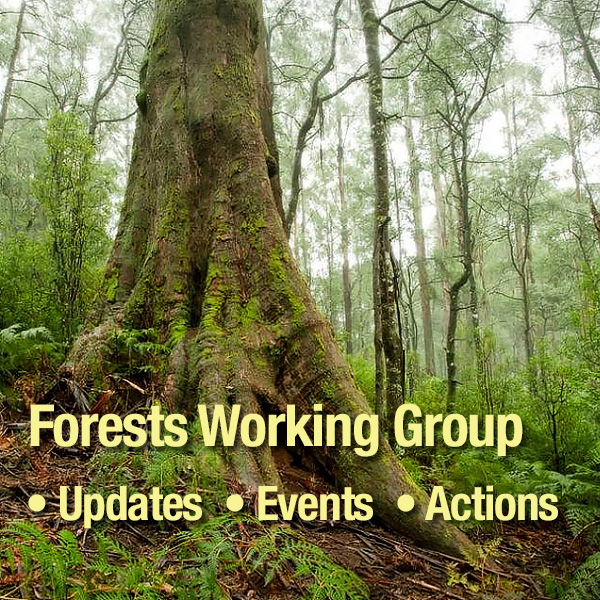FEBRUARY UPDATE
Wombat Forests Victory! Community logging to cease
Congratulations to the tireless Wombat Forest campaigners as VicForests, citing the threat of litigation, brings forward the end of community logging in Victoria’s west by February 5th.
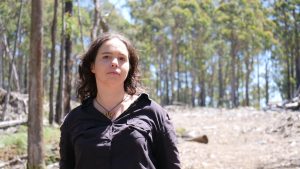
Environmental campaigner Amy Calton says it’s devastating seeing the impact of salvage logging in the Wombat State Forest.(ABC Ballarat- Rochelle Kirkham)
The state government ban on native timber harvesting did not include community forestry – around 50 operators on contracts for thinning or harvesting wind thrown or single trees, mainly for firewood or fence posts. Wombat Forestcare gained a Supreme Court injunction last September, over lack of environmental surveys by VicForests.
The ABC states “State-owned business VicForests is facing court proceedings brought by 200-member community group Wombat Forestcare alleging it breached requirements to survey for threatened species in western Victorian forests.”
“Wombat Forestcare convenor Gayle Osborne said the cessation of timber harvesting was important for ecological recovery. “The public land in the west sits within a highly fragmented and cleared landscape and is critically important for the survival of a large number of threatened plants and animals,” she said. ”
This decision brings legislating the promised Mount Buangor and Pyrenees National Parks closer.
You can visit the Wombat Forestcare website here.
JANUARY UPDATE
Ongoing risk to forests, and restoration challenge
New video highlights!
This short video carries Prof Lindenmayer’s key messages, including the challenge for forest regeneration and species restoration.
Forests information page
Want to learn more about forests and climate, bushfire, logging, what is happening with our precious forest animals and what you can do to help? Check out our recently updated forests information page here.
NOVEMBER UPDATE
Christmas Gifts – next generation nest boxes
Consider giving the gift of a fire resistant, insulated home for a family of Greater Gliders!
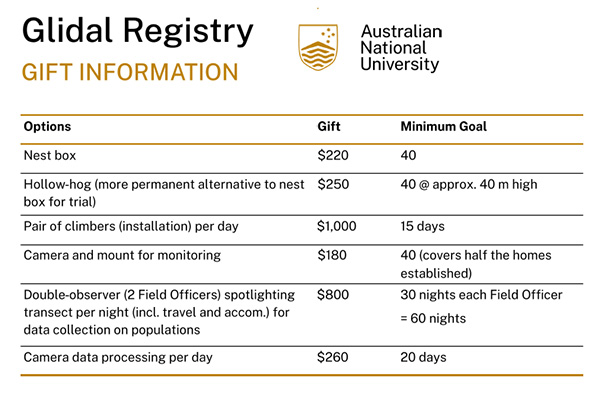
You can support ANU’s Greater Glider Recovery Project here.
To learn more watch this 5 minute highlight video – includes some footage from WWF of nest box installation high up in the trees.
OCTOBER UPDATE
Victoria’s Native Forests: State of Play
Our 27th September forests public meeting at the Balwyn Park Centre was a standing room only event.
- You can view the event here.
Professor David Lindenmayer presented research detailing that logging increases fire risk for many decades, that thinning may reduce fire risk for a few years, but then elevates it for around fifty years. It now turns out that “hazard reduction” planned burns also increase fire frequency and severity in the medium term and should be used sparingly, only close to built people and property.
Th population of the hollow bearing trees that are so important to the survival of forest animals like the Greater Glider continue to crash, and are likely to have been reduced by 90% by 2035 without intervention.
What is needed now is forest regeneration as well as preservation.
Speakers slide sets are available:
- View Professor David Lindenmayer’s slideset here
- View Sue McKinnon’s slideset here
- View Aawa White’s slideset here
- More details in our event blog here.
There are positive actions we can take.
- Support the Greater Glider recovery project with ANU. Help provide fire resistant, insulated nest boxes where Greater Gliders need them most. Check out our five minute video presentation here, including extra footage of nest box construction, installation and Greater Gliders.
- Hollow bearing Tree Challenge – contribute valuable citizen science data about hollow bearing trees. Download our easy A4 instruction sheet here!
SEPTEMBER UPDATE
Family forest adventure and Greater Glider spotlighting
On Saturday 16th September Lighter Footprints, Boroondara ACF and Kinglake Friends of the Forest hosted our first Family Forest event, with 60 participants, family activities and picnic and spotlighting Greater Gliders with 1000 lumen spotlights.
JULY UPDATE
Since the Victorian Government announced an end to native forest logging on 1st Jan 2024, our Lighter Footprints Forests Working group has been working hard to understand what this announcement means for Victoria’s forests.
Although the announcement was good news, forest defenders remain concerned about ongoing ‘salvage’ logging, particularly in the Wombat State Forest, logging occurring under the recently extended Timber Utilisation Plan, and planned burns that cover thousands of hectares of native forest.
Since the announcement the VicForests Board also amended the Timber Release Plan on 23 June adding 184 new coupes, 12 coupe boundary changes and 2 coupe driveway additions.
Fact Sheet
As such, we have worked with the Victorian Forest Alliance and ecologists to develop a “fact sheet” that covers the value of Victoria’s native forests and outlines the next steps required for a better future. Please see the “fact sheet” here.
September Event
You can hear more from the experts by attending our September 27th event with special guest Professor David Lindenmayer and forest champions Sue McKinnon and Aawa White. Register here.
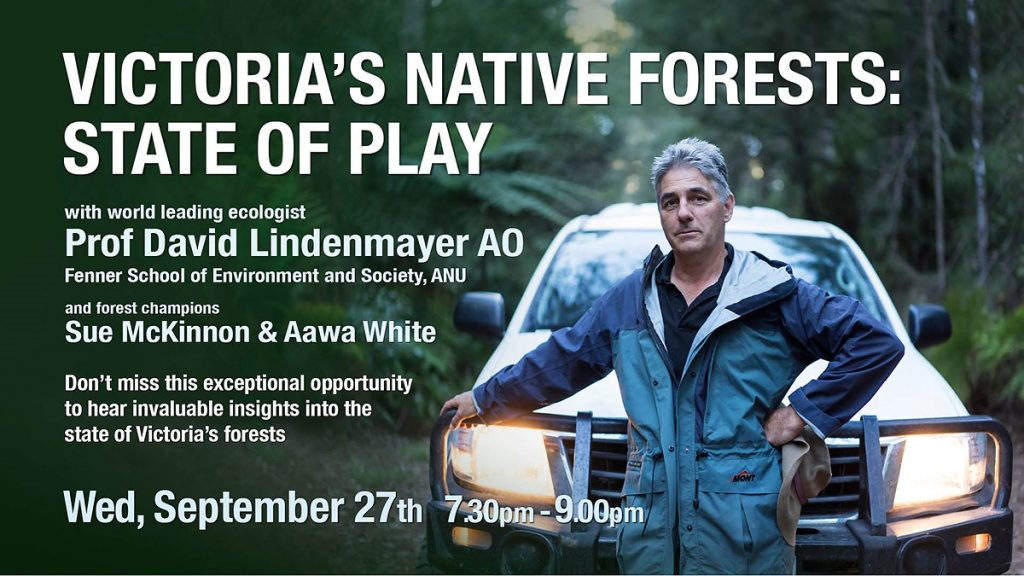
In the meantime, citizen scientists continue their hard work protecting areas of forest from any intervention by finding, recording and submitting the locations of endangered species like greater gliders and leadbeaters possums. We can support their work by donating to the Victorian Forest Alliance chuffed campaign here.
Melbourne Rally
The Bob Brown Foundation is also leading three days of action for native forests on 10-12th August. In particular, you can stand up for our forests and wildlife by attending their Melbourne “Rally for Forests” on Sat 12th August at 11am.
Hope to see you there!
Lighter Footprints Forests Working Group
NATIVE FOREST LOGGING TO END IN VICTORIA
(24/5/2023)
From Chris Schuringa, Victorian Forest Alliance
I’ve got tears in my eyes, and I can’t believe I’m writing these words right now. This morning we learned the Dan Andrews government is bringing forward the transition out of native forest logging – to the end of this year!!
This is a momentous win for forests, wildlife, climate, and all of the people who wrote letters, surveyed for wildlife, met with politicians, protested, ran court cases, sat in tree-sits, you name it. This is your win.
What a historic moment – and we couldn’t have done it without all your support, hard work, and monumental courage and passion.
Share this epic news on social media and get the word out!
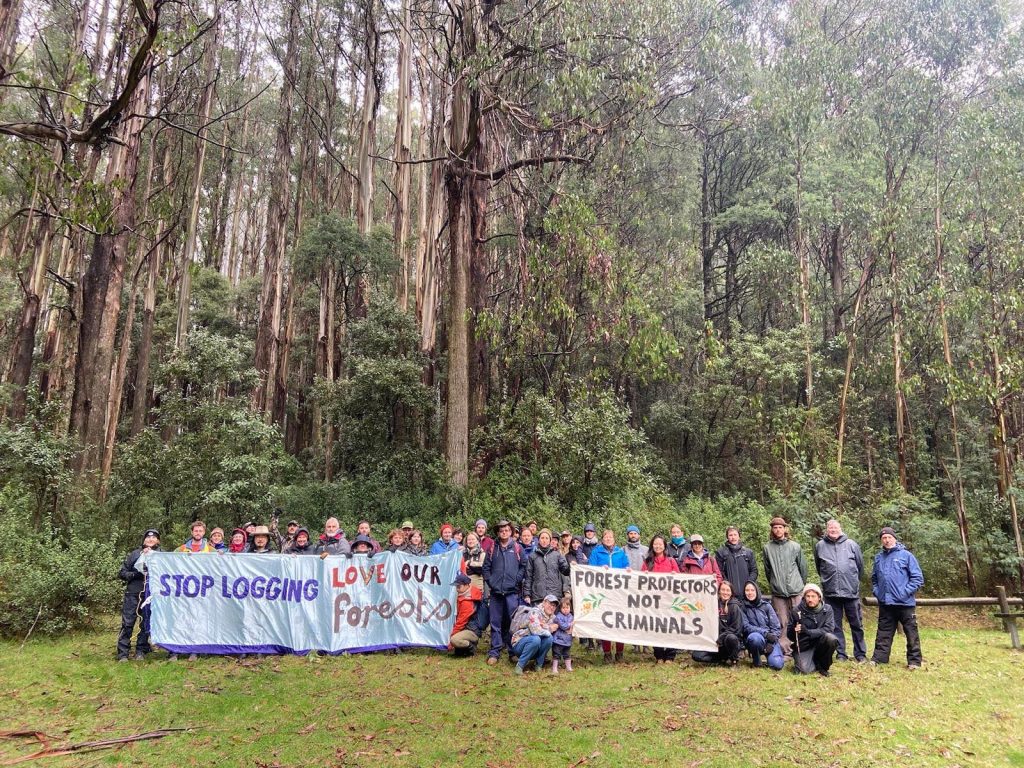
Citizen scientists & forest defenders in Toolangi on Saturday opposing the anti-protest laws
We know there are a lot of details that need to be ironed out. We need to see real pathways to the permanent protection of forests – from all kinds of logging and disastrous practices.
We need a just transition for workers, funding for restoration, and there’s plenty of work to be done to make sure the government tears up their dodgy wood pulp contract for good.
There’s certainly more to do. But in the meantime, we’re celebrating this incredible moment we’ve all fought for, for a long time!
We’ll be organising a big party, and you’re all invited! We’ll be in touch soon with some details – we can’t wait to party with you!
We’ll keep holding the government accountable every step of the way through this process, until we see real, permanent protection of forests.
To all our members, comrades, and supporters who have worked tirelessly on this, whether you got involved yesterday, or been around for decades, THANK YOU.
In hope and joy, for forests,
Chris – Victorian Forest Alliance
http://www.victorianforestalliance.org.au/
Opportunities to connect and learn
(17/4/2023)
We all need that connection to forests now more than ever, and there are plenty of opportunities to witness these special places for yourself.
If you haven’t seen a greater glider before, this could be your chance. There will also be some VFA citizen scientists out there to show people how to look for and record the gliders.
It’ll be a great event, and if you find a spot to camp or stay nearby, the next night Peter Crowcroft will be running a talk at the Trentham Neighbourhood Centre, hosted by Wombat Forestcare.
Peter Crowcroft aka possumpete, is an environmental educator and avid iNaturalist poster, where he has uploaded over 11,000 observations of roughly 3,000 Australian species – mostly moths and plants. Peter will deliver a talk and hands on workshop on using iNaturalist and spotting moths.
For more details and to RSVP to Peter’s talk on Sunday April 30, head here.
Then on Saturday, May 27, ACF Boorondara and Lighter Footprints will be hosting a citizen science training out in Toolangi, just a few hours outside Melbourne. This will be another fun, immersive experience with heaps of hands-on skills to learn.
In one afternoon-evening, you can learn how to document threatened species and their habitat using tools for mapping, GPS locating, photography, and Basecamp app recording.
This will be an awesome event with local community groups and forest campaigners, and a great introduction to getting involved in citizen science to protect forests and wildlife.
RSVP to the spotlighting and citizen science training in Toolangi on Saturday May 27.
Looking forward to seeing you in the forest soon!
In solidarity, Chris – Victorian Forest Alliance
http://www.victorianforestalliance.org.au/
Toolangi Forest Tours
Tour Toolangi Forest with an expert guide
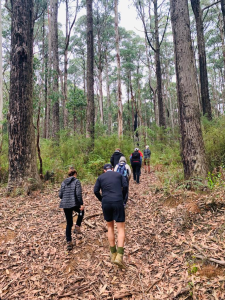
Would you like to visit a native forest just an hour out of Melbourne, and see the effects of clear-fell logging first-hand? An alliance of Victorian ACF community groups offers you the chance to join one of its tours, run in collaboration with expert guides from Nillumbik Friends of The Great Forest, Kinglake Friends of The Forest, and other member groups of The Victorian Forests Alliance. The tours generally run on Sunday mornings, starting at 9 a.m. with a briefing over morning tea, and finish around midday. Participants gain a fuller understanding of the impact of native forest logging on our flora, fauna, water catchments, carbon stores and fire risk.
Tours are currently planned for 31st March, 2nd April, 30th April and 28th May, with more dates to be scheduled following a break over winter.
To register your interest in joining a tour, please email juliacroatto@gmail.com
New research reveals how forests reduce their own bushfire risk if they’re left alone
(22/3/2023)
Fire management in Australia is approaching crisis point. Seasons such as the Black Summer three years ago showed how our best efforts in fire-fighting and prescribed burning are insignificant in the face of a changing climate.
But what if forests have their own tools to manage bushfire risk, and we could tap into them?
We know long-unburnt mountain forests in south-east Australia are far less fire-prone than more recently burnt areas. And forests in south-west Australia have the lowest fire risk when they’ve not been subjected to prescribed burning.
Our study just published set out to understand why this occurs, by modelling fire behaviour in iconic red tingle forests of south-west Australia. Our findings offer a clear set of tools for living with fire, even in a warming climate.
The authors conclude, “One thing is clear: if we still want forests in our flammable country, we must stop burning their defences away.”
Read the whole article in The Conversation here.
You can join the Lighter Footprints Stop Logging Save Forests Working Group here.
UN INTERNATIONAL DAY OF FORESTS
Tuesday 21 March was UN International Day of Forests.
“When we drink a glass of water, write in a notebook, take medicine for a fever or build a house, we do not always make the connection with forests. And yet, these and many other aspects of our lives are linked to forests in one way or another.”
The theme for 2023 is “Forests and health.” You can download the report Forests for human health and well-being
And watch this short video or explore the website for other resources.
Lighter Footprints letter writers worked hard and were rewarded with six publications in Perth, Adelaide and Melbourne. You can read their letters here: UN Int Day of Forests Letters
You can join the Lighter Footprints Stop Logging Save Forests Working Group here.
FOREST BURN THREATENS GLIDER
Strathbogie State Forest was recently declared an Immediate Protection Area by the Victorian Government in recognition of its importance for protecting the nationally endangered Southern Greater Glider.
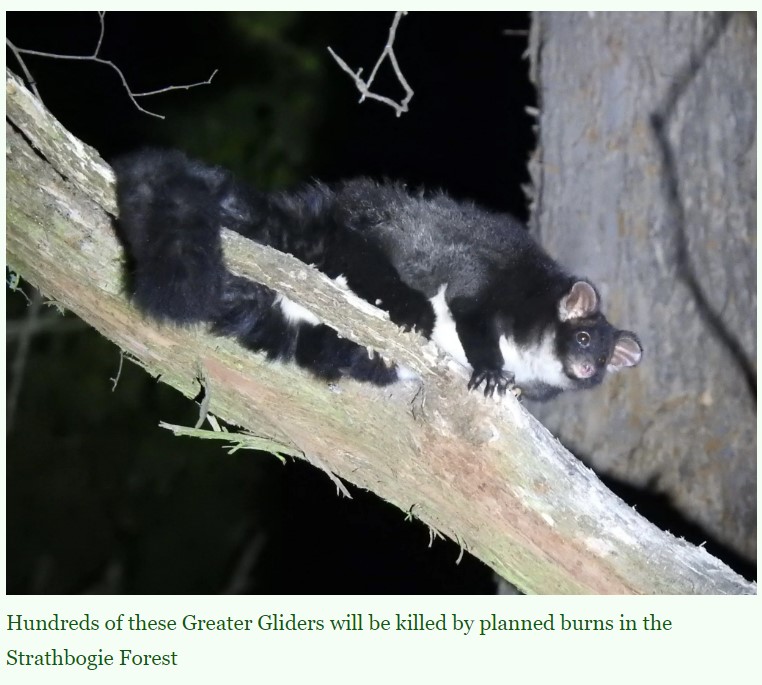
Despite this, planned burns by the Department of Energy, Environment and Climate Action (DEECA) will degrade upwards of 1300 hectares of crucial habitat in the Strathbogie Forest, this year alone. 400 threatened Southern Greater Gliders are expected to perish in the burns.
Read more by Our Strathbogie Forest group here
Sign the Animal Justice Party petition here
You can join the Lighter Footprints Stop Logging Save Forests Working Group here.
MARCH LETTERS
(17/3/2023)
Congratulations to Sophie Torney who had her first letter published today.
If you are interested in writing letters to newspapers and politicians as a form of climate action visit our Take Action page and sign up for the Letter Writers Working Group. We’ll get in touch for a chat.
You can also join this Forests Working Group on the same Take Action page.
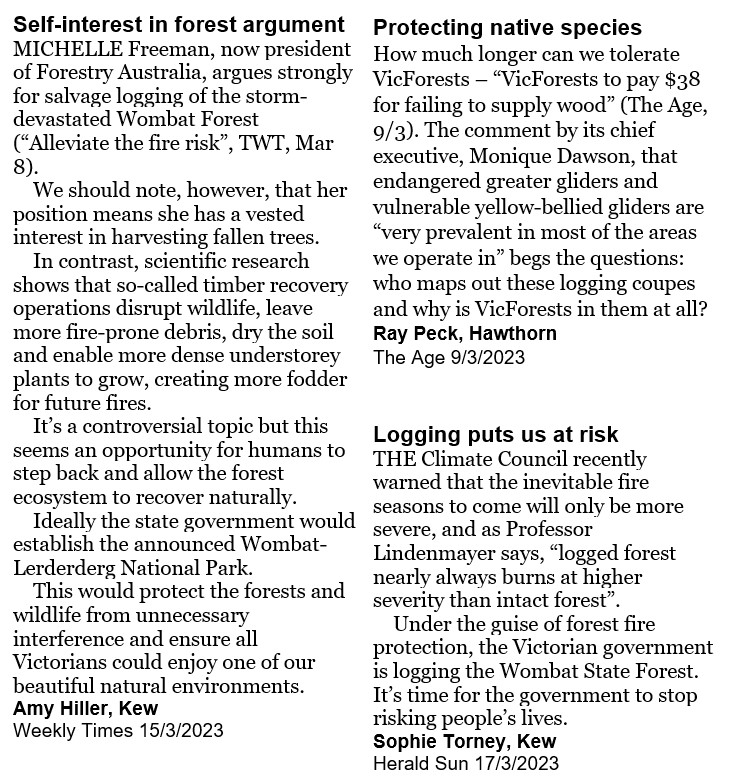
You can join the Letter Writing and Stop Logging Save Forests Working Groups here.
DAVID LINDENMAYER on logging and fire
(Herald Sun 15/3/2023)
David Lindenmayer is arguably the world’s leading forest ecologist. You can read his amazing CV here.
In this article, David explains how logging and current forest management make our forests more fire-prone. He suggests three solutions.

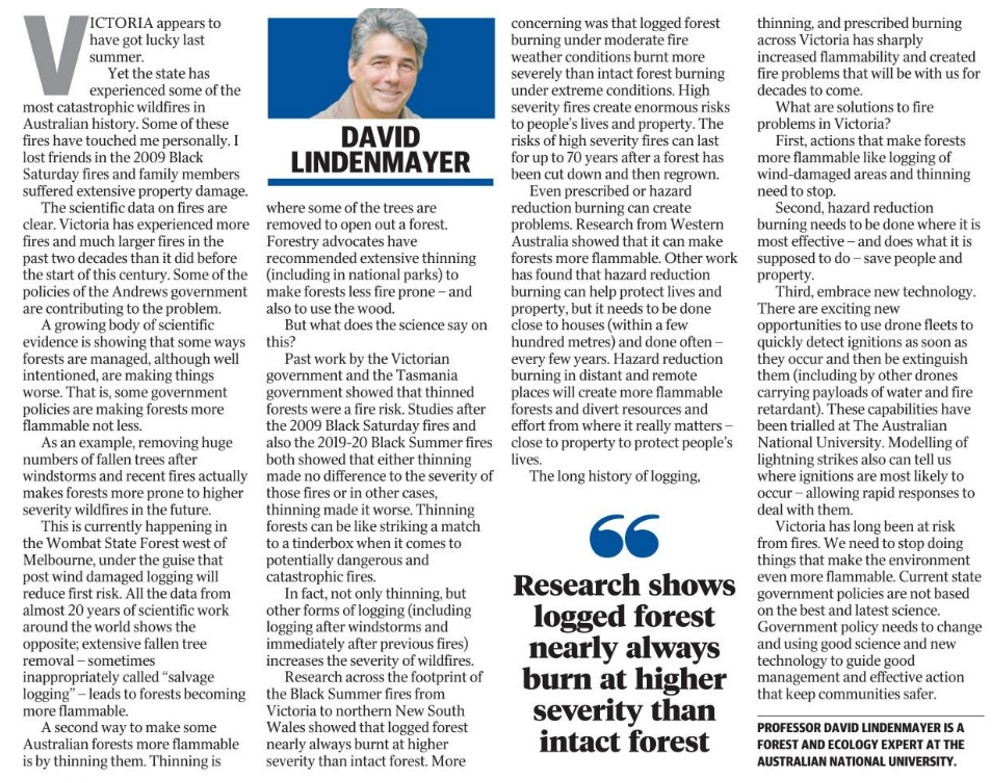
DON’T MISS this upcoming informative webinar
When is a nature reserve not a nature reserve? When it’s already been burned and logged
(7/3/2023)
The ANU’s Professor David Lindenmayer and Chris Taylor have published a disturbing report in The Conversation.
Victoria’s Immediate Protection Areas (IPAs) are designed to conserve forest biodiversity in Victoria. The study found that IPAs didn’t do what they were supposed to do. The protected areas were small, and well short of the area needed to adequately conserve threatened species. Many IPAs were established in forests already burned, logged, or both, meaning their value as habitat was limited.
Lindenmayer and Taylor compared the known and mapped ranges of threatened species against the new conservation reserve areas. The results were sobering. The full article can be found here.
New Report: Trees for Health
(7/3/2023)
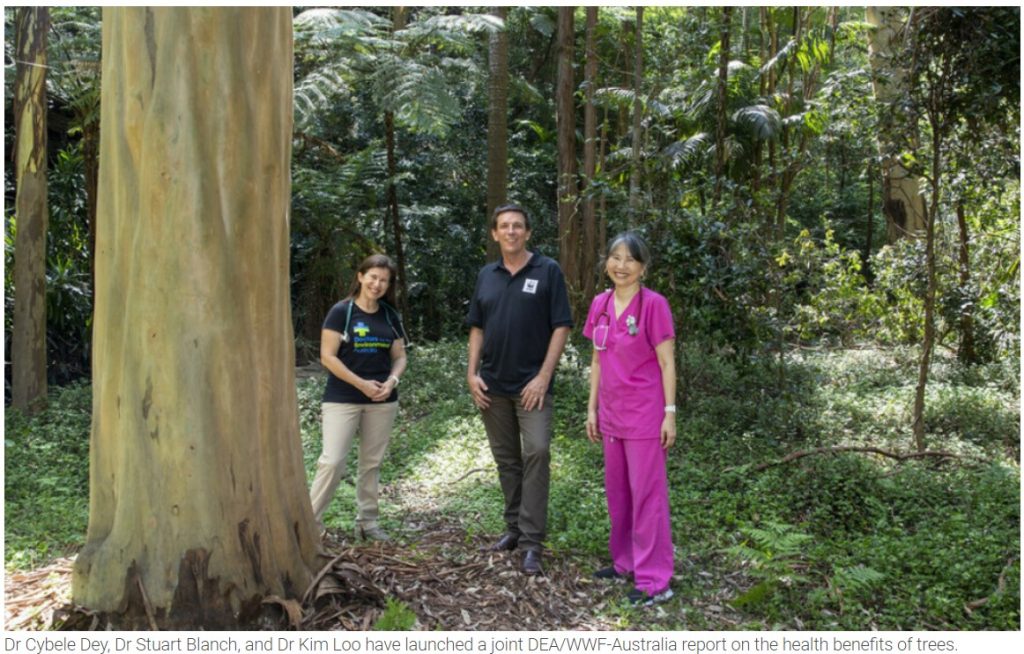
Doctors for the Environment Australia (DEA) and WWF-Australia have launched a major new report on the growing evidence connecting trees and forests to human physical and mental health.
Trees boost our physical and mental health, filter our air and water, provide homes for pollinators that underpin much of our food supplies, cool our communities, help protect us from infectious diseases , connect to Country, help curb climate change- the biggest threat to health this century, and more.
But they’re facing major challenges from deforestation and land clearing. It’s essential that we protect them- for our health’s sake.
Read the full report HERE and read the media release HERE
You can join the Lighter Footprints Stop Logging Save Forests Working Group here.
Recent forest letters
(1/3/2023)
Here is a small selection of published letters on the value of forests and the damage done by logging written by our letter writers.
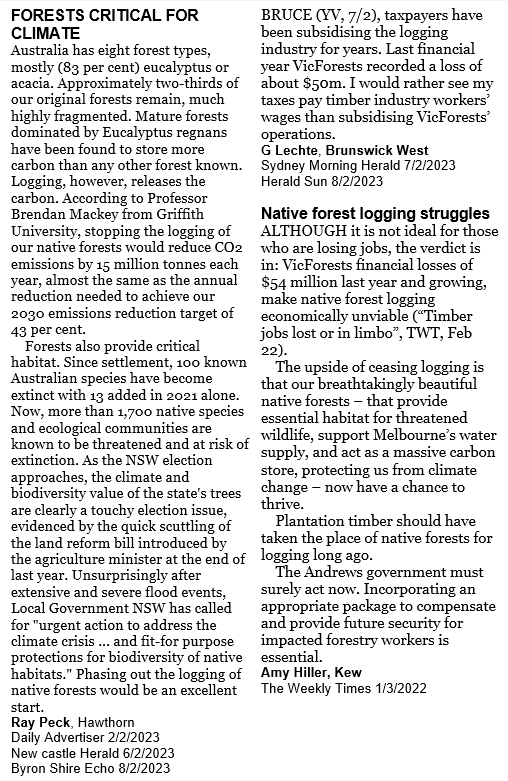
New Environment Minister welcomed
(1/3/2023)
In December 2022, Ingrid Stitt MLC, Member for Western Metropolitan, became Minister for Environment taking over from Lily D’Ambrosio. Ms Stitt is also Minister for Early Childhood and Pre-Prep.
Lighter Footprints welcomed Ms Stitt to her new role with a letter and copy of The Great Forest: The rare beauty of the Victorian Central Highlands by David Lindenmayer.
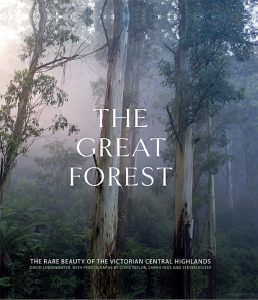
Welcome letter
The Hon. Ms Ingrid Stitt MLC
Victorian Minister for Environment
27 February 2023Dear Ms Stitt,
Congratulations on your appointment as Victoria’s Minister for Environment. The diversity of Victoria’s natural environment is exceptional, ranging from floral-rich deserts in the northwest to the tall forests in the central highlands and the beautiful coastal parks.
Lighter Footprints is a community group based in the Eastern suburbs of Melbourne. For fifteen years we have advocated for the environment and worked closely with all levels of government. For example, we are working with the City of Boroondara on the Electrify Boroondara project. We also hold monthly events which can be found on our website[1].
Given the devastating fires in 2009 and 2019-2020, and the more frequent and extreme weather events made worse by climate change, our forests and the animals within them are under increasing threat. As you know, over 2,000 species and habitat communities are currently listed as threatened under Victoria’s Flora and Fauna Guarantee Act[2].
While we applaud Victoria’s three new national parks: The Wombat-Lerderderg National Park, Mount Buangor National Park and the Pyrenees National Park, we are deeply concerned that our native forests are still being logged. The role of Victoria’s native forests in storing carbon, providing habitat, and protecting Melbourne’s water supply should not be underestimated[3]. We commend to you the recent report, Victoria’s Forest Carbon: An Opportunity for Action on Climate Change.
On behalf of Lighter Footprints, we wish you all the best in your role as Minister for Environment. We hope that you enjoy The Great Forest book and are inspired to advocate for the Great Forest National Park. What an asset we have on our doorstep.
We also hope you will find a way to stop the logging of Victoria’s remaining native forests as soon as possible. The time is right. 2030 is far too late.
We look forward to working with you in the future.
[1] https://lighterfootprints.org/
[2] https://www.environment.vic.gov.au/conserving-threatened-species/threatened-list
[3] https://www.blueprintinstitute.org.au/logging_off_forestry
You can join the Lighter Footprints Stop Logging Save Forests Working Group here.
Momentum is growing
(24/2/2023)
After a well-attended February event, momentum within the newly formed Lighter Footprints Forest Action group is growing. To join us, please sign up here. Informed citizens always make better advocates and we alert you to two important upcoming events.
Event 1 Tues 7th March, 6.30-8.00pm, 535 Elizabeth St, Melbourne
The right to peaceful protest and citizen science activities near forest logging sites
We support the Wilderness Society that “peaceful protest and the right to
protest—especially in public places—is a central pillar of a healthy democracy”
The current laws are draconian.
Late last year the Victorian Government passed laws enabling penalties of up to $21,000 to
apply to individuals or groups participating in citizen science activities and/or peaceful
protest near forest logging sites.
You’re invited to a forum on Tuesday, 7 March 6:30–8 pm on the right to organise
for climate and the environment facilitated and organised by our friends at
Goongerah Environment Centre (GECO).
This is an opportunity to learn more about what these changes to the law mean for
peaceful protest, nature and climate and what you can do.
At this forum, you’ll hear from four passionate and well-informed speakers:
- Marjorie Thorpe Proud Gunnaikurnai woman
- Godfrey Moase Executive Director at the United Workers Union
- Natalie Hogan Ecosystems lawyer with Environmental Justice Australia
- Tuffy Morwitzer Campaigner for the Goongerah Environment Centre
When: Tuesday 7 March, 6:30–8.00 pm
Where: Australian Nursing and Midwifery Federation, Carson Conference Centre, 535
Elizabeth St, Melbourne VIC 3000.
Access: Wheelchair accessible and Auslan interpreted.
RSVP is essențial. Register here
Event 2: March 16th, 7.00-8.30pm Online
Victoria’s Forest Carbon Report
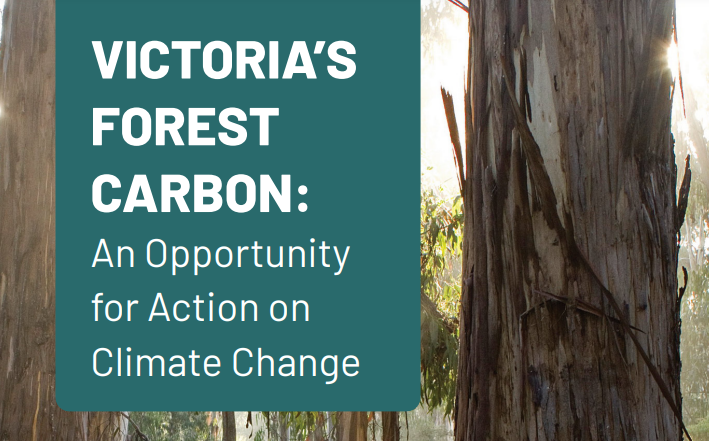
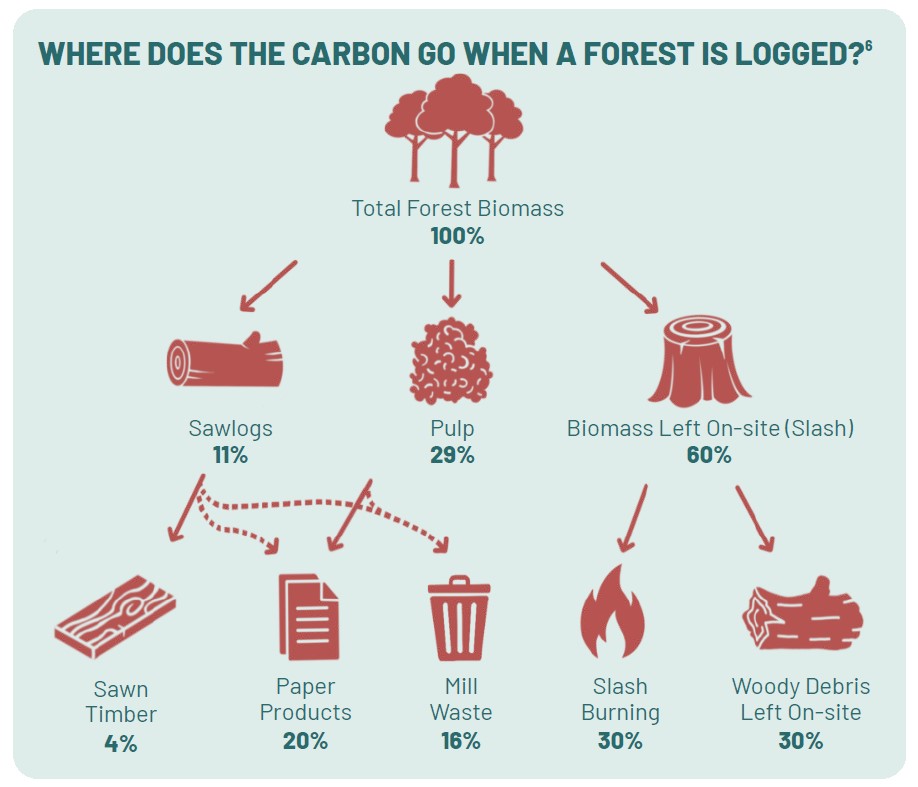
7:00 pm Alana Mountain – Acknowledgement of Country
7:10 pm Chris Schuringa – Victorian Forest Alliance Introduction
7:20 pm Doctor Jennifer Sanger – Presenting the Carbon Report
7:50 pm Special guest TBA
8:10 pm Q&A
8:30 pm Finish
You can join the Lighter Footprints Stop Logging Save Forests Working Group here.
We must save our remaining native forests
(20/2/2023)
Victoria is on the verge of a breakthrough. You can be part of it.
The Lighter Footprints Save Forests Stop Logging Working Group was formed in January 2023. It can help you actively support the current forest campaigns in Victoria, and keep you informed with up-to-date and timely posts.
At the end of this page, you will find how to join the Working group should you wish to be actively involved.
What’s happening with native forest logging in Victoria in February 2023?
The tone within the Victorian Forest Alliance (VFA) is positive, but there is still much work to do!
The court cases in late 2022 were a big win. Jill Redwood from Environment East Gippsland said she feels like we’re at a tipping point largely as a result of legal efforts/outcomes.
The closure of the Maryvale Mill which is VicForests biggest customer is also important. Apparently, Maryvale Mill hasn’t made a profit since Nippon took it over in about 2012. But Nippon continues to use native forest timber to make pallets, so our advocacy is still required.
New Minister
After the Victorian State election in November 2022, Ingrid Stitt was appointed as the new Environment Minister. The reshuffle offers more opportunities to speak to our elected representatives and air our concerns regarding the consequences of logging our native forests with them. You can contact her directly here or modify the VFA prepared form.
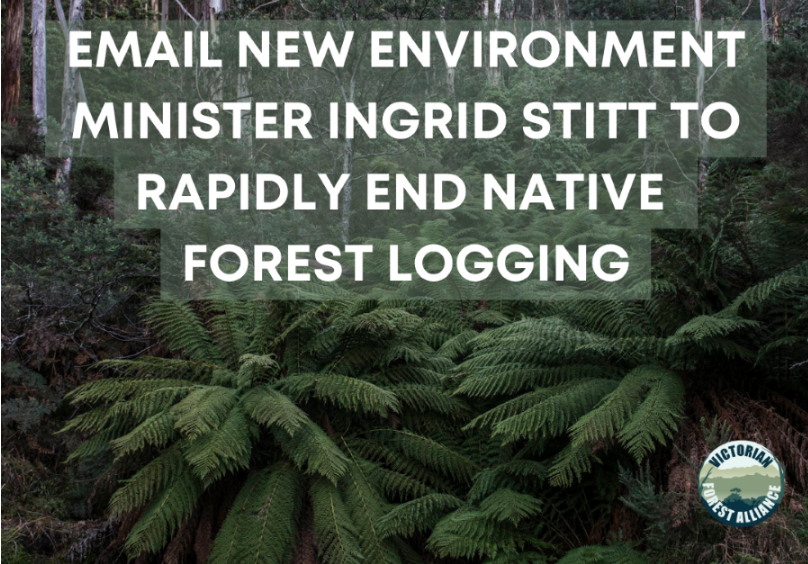
Wombat State Forest needs help
After the June storm in 2022, 175 salvage coupes have been legally approved in the Wombat State Forest, of which 80 are in the proposed national park. Totally intact forest is being decimated. Read about the concerns of residents here.
The Alliance needs help in the Wombat-Lerderderg State Forest region. Nature is regenerating however VICFORESTS is logging.
How can you help?
- support with donations to VFA
- support by writing letters to MPs and letters to the editor and finding other opportunities to get the issue of logging into the media. Email MPs
- attend rallies like the one on 7 February on the steps of the Victorian Parliament (see photos )
- join citizen science actions looking for greater gliders and other protected species such as Mountain Leafless Bossiaea to help call off logging coupes.
- support legal actions
- help Friends of the Earth and join a forest tour
- there’s also a research and submissions program being run by GECO: Goongerah Environment Centre Office is a grassroots group fighting for the protection of East Gippsland’s forests
- sign up for the GECO Easter Camp.
Excellent report
An easy way to get up to speed on Victoria’s forests is to download and read this recent 12-page report VICTORIA’S FOREST CARBON: An Opportunity for Action on Climate Change published by Dr Jennifer Sanger of The Tree Projects and the Victorian Forest Alliance in October 2022. As the report concludes, protecting native forests is climate action.
Information/websites for various groups working in this space:
- VIC FOREST ALLIANCE
- EASTGIPPFORESTS
- WOMBATFOREST
- WOMBAT FOREST TWITTER
- KINGLAKE FRIENDS OF THE FOREST
- RUBICON FOREST
- WOTCH -Wildlife of the Central Highlands
Join us
To find out more about Lighter Footprints and the Save Forests Stop Logging Working Group visit the Take Action page here. To join the Save Forests Stop Logging Working Group, scroll down to the bottom of the page, complete the form and check Forests Working group.

